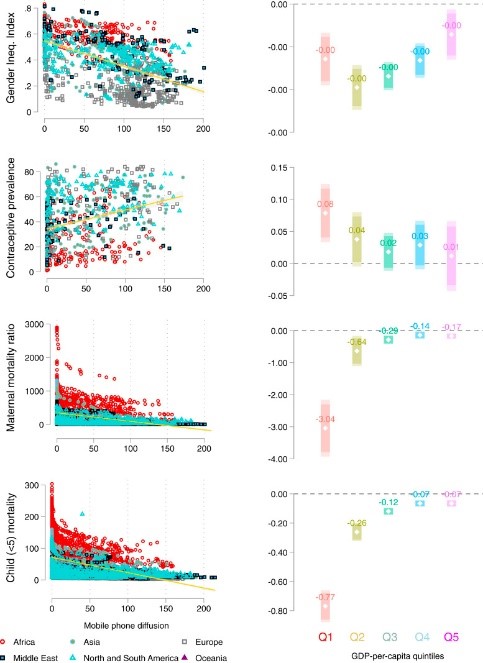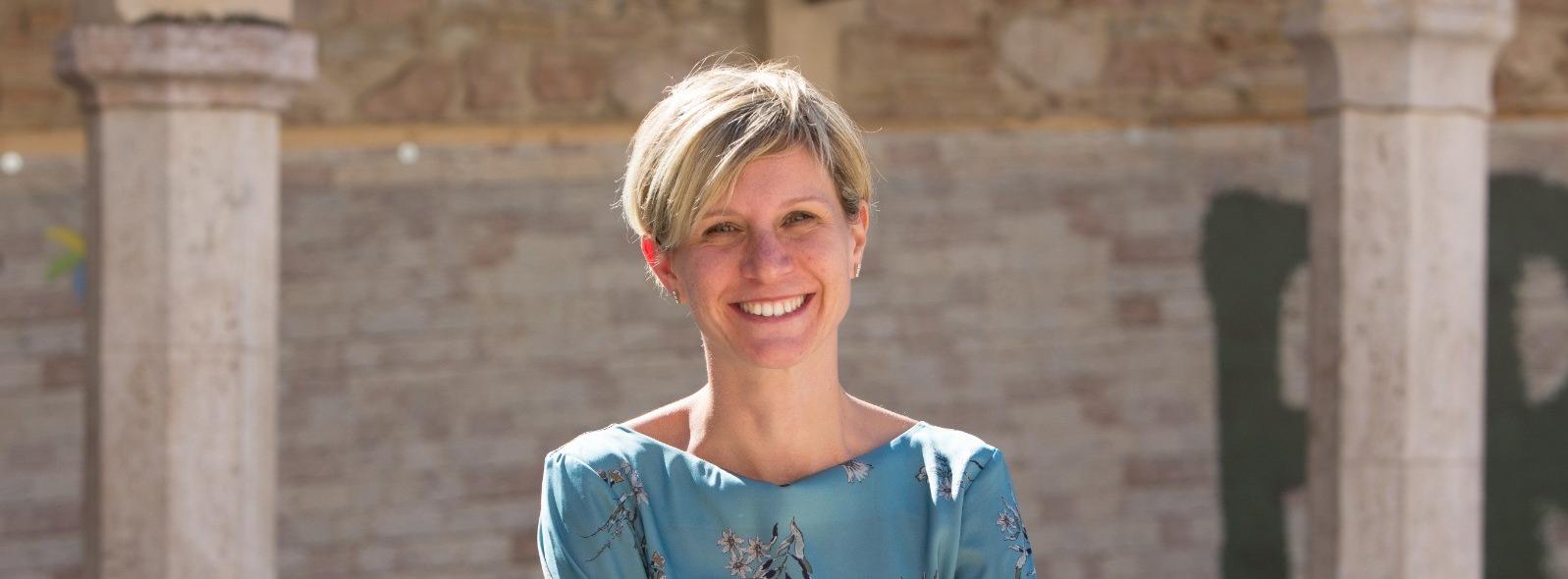Last month, our alumni Valentina Rotondi was promoted to Professor in Technology and Population Health at the University of Applied Sciences and Arts of Southern Switzerland (SUPSI). In this alumni spotlight, Professor Valentina Rotondi reflects on her time at the Leverhulme Centre for Demographic Science (LCDS) as a Postdoctoral Researcher from 2019 to 2021. She also offers tips for aspiring demographers and outlines exciting plans ahead at SUPSI.
What are you looking forward to the most in this new position?
In my new role as a Professor at SUPSI, I'm particularly excited about the opportunities this position presents for furthering interdisciplinary research at the intersection between technology and public health. SUPSI is a young but dynamic institution, and I look forward to contributing to its growth and impact. I'm also eager to continue my work in nurturing the next generation of researchers and students, fostering an environment that values innovation and collaboration.
How important was your Postdoc at Oxford and LCDS in becoming a Professor?
My postdoctoral experience at the University of Oxford and LCDS was crucial in shaping my academic journey. It exposed me to diverse research perspectives, interdisciplinary collaboration, and the importance of international networks. During my time at LCDS, I had the privilege of working with and learning from some of the most renowned experts in social sciences, some of whom have become important mentors and even close friends. These mentors provided invaluable guidance and support, helping me develop as a researcher.
This experience provided a strong foundation for my career and significantly contributed to my growth as a social scientist. The knowledge and connections I gained during my Postdoc have been invaluable in my path to becoming a Professor at SUPSI, and I will continue to draw upon the lessons and relationships formed during my time at Oxford as I move forward in my academic journey.

and sustainable development outcomes.
Tell us more about your research at LCDS
During my time at LCDS, I conducted research on how the digital revolution impacts various aspects of people's lives. For example, I explored the role of mobile phones in narrowing gender inequalities (see figure), enhancing contraceptive use, and reducing maternal and child mortality (PNAS 2020). Additionally, I delved into the dynamics of trust in scientists and public health authorities during the COVID-19 pandemic (SSM – Population Health, 2021). My research also addressed the challenges of measuring complex social phenomena like Intimate Partner Violence using big data sources, particularly online data from Google Trends (European Journal of Population Health, 2022). These experiences have greatly influenced my ongoing work and research at SUPSI.
From a Postdoc at Oxford to a Professor in Switzerland, do you have any tips for aspiring demographers?
For aspiring demographers, I would emphasise the importance of interdisciplinary research and collaboration. Demography is a field that intersects with various other disciplines, and embracing these connections can lead to innovative insights. Additionally, building a strong network of peers and mentors, as I did during my Postdoc, is crucial. Lastly, don't underestimate the significance of communication and public engagement. Demographic research often addresses critical societal issues, and sharing your findings with a broader audience can lead to positive impacts on policy and public understanding.
What's next?
At SUPSI, a primary goal is to evolve the early-stage advanced research infrastructure into a collaborative hub for addressing key social science questions. This collaborative initiative with SUPSI’s Department of Innovative Technologies will support field research, enabling data collection through various means, including questionnaires, wearable devices (including brain and Fitbit monitors), and behavioural economics experiments. This ambitious project involves fostering international collaborations, supporting emerging researchers, and spearheading a future PhD programme at SUPSI.
My current focus is on finalising research projects, such as investigating the impact of transitioning to parenthood on brain structure and functionality, and its correlation with workplace productivity. I have recently submitted a paper on the long term consequences of this topic with colleagues at LCDS. Thanks to the generous support of the FIDINAM foundation, I am conducting longitudinal data collection, which includes functional magnetic resonance imaging and behavioural economics games.
Beyond research, I am committed to enhancing the educational experience for students at SUPSI by refining courses, creating innovative interdisciplinary programmes, and organising methodoloigical and social sciences research seminars that foster the exchange of ideas and nurture collaborative research endeavours.
Looking forward, I aim to shape my department into a dynamic, interdisciplinary centre with a focus on diverse perspectives in public health. This centre will prioritise collaborative research, community engagement, and high-quality education, contributing significantly to addressing socio-economic and health challenges and advancing public health outcomes. In the vibrant and dynamic environment of SUPSI, I am enthusiastic about embracing the challenges and opportunities ahead, eager to make a meaningful impact and contribute to SUPSI's forward-looking ethos.
Read our previous alumni spotlight on Dr Arun Frey, Data Scientist at RegLab


